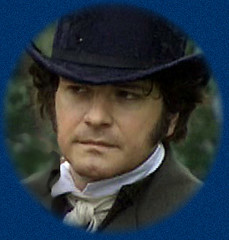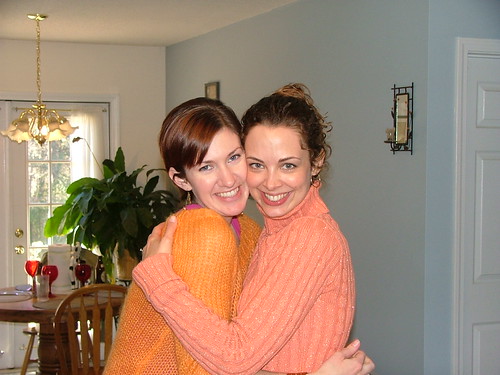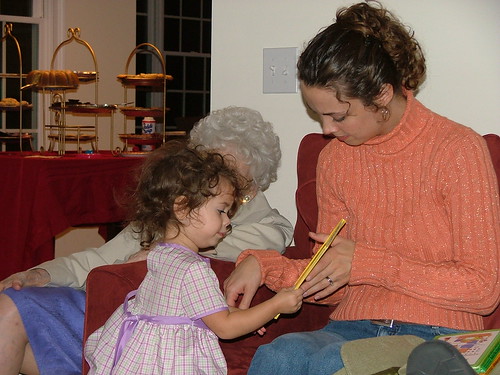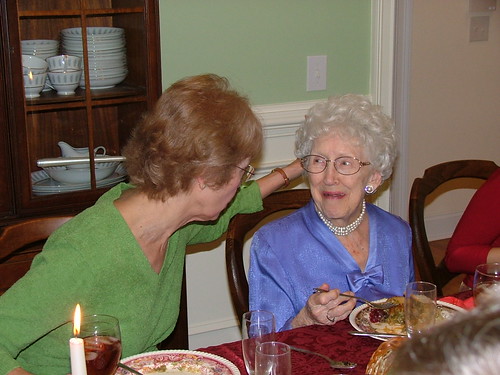Rachel did a wonderful job summing up the new
Pride and Prejudice that's now out in theatres. I could have written her post myself...almost.
Long story short, it must be understood before engaging in any conversation about (or reading anything about) this film that, more than likely,
NOTHING will EVER compare to the 1995 BBC version. While I do have some small quibbles with that series--which Rachel elucidates in her post, actually--I do think it's as close to Austenian perfection on celluloid as we're ever going to get.
I went into it with the "this is not the BBC version" caveat in my mind, but the fact is that I can't divorce my experience of reading and viewing from my present experience in the theatre.
Ahem.
With that said, I'll tell you what I liked and disliked about this new film.
LIKES (AKA
THINGS THAT WERE OKAY):
1.
Mr. Darcy (Matthew McFadyen) is all right. No Colin Firth, mind you, but "tolerable, I suppose." He's not very handsome, but I'll reluctantly admit that he grew on me as the movie progressed. And the cheesy, anachronistic lines he was sometimes given weren't his fault.
2. I did like the
softening of Mrs. Bennet, and will reserve further comment on her for the 'dislikes' portion of my post. Suffice it to say that my ears are thankful to be spared some of Mrs. Bennet's shriller moments.
3. I liked
Charlotte and thought the explanation of why she married Mr. Collins was extremely well done (except for the "Don't judge me!" silliness...see my complaint about anachronisms below). This is an excellent example of something that was done better than even the 1995 version, where I thought the treatment of Charlotte's marriage wasn't sympathetic enough to her situation.
4. Rachel's right:
Mary is truer to the book in this film. BBC Mary was hil.ar.i.ous, but it
was a caricature.
5. Nice
cinematography!
6.
Lady Catherine was fun, as she should be. I was afraid my dad would choke from laughing while munching popcorn.
7. Some of the
dialogue was included from the novel that the BBC version omitted. I noticed this with some of Mr. Collins' speeches particularly. Of course, he's also the one who inadvertently makes an "intercourse" joke (see #3 below). Can't win fer losin'.
DISLIKES:
1.
The overarching thing that annoyed me about this film was its lack of subtlety. Everything was spelled out so that the American audience would get it, perhaps? One of the delights of a great film or a great book is that every theme and nuance are not spoon-fed to the viewer or reader. "We're so alike! We're both so stubborn," Lizzy exclaims at the end. Oh, really? You're kidding me...I didn't know.
2.
The emasculation of Mr. Bennet's wit. In this version, Mr. Bennet is a doddering, doting old dad who is far milder than what I hoped for. The tension between Mr. and Mrs. Bennet, and the verbal sparring that results from it, are essential parts of their characters and of the family's ethos. Unlike Rachel, I blame this on script and direction more than casting. Donald didn't have a lot to work with once his best lines or delivery methods were taken away from him.
3.
Anachronistic language. At one point, the word "intercourse" is used as a bawdy joke (though, as Lizzy might say, "it was most unconsciously done"). It's not in the novel and adds nothing but an Americanized, Westernized, modernized, juvenile guffaw to the film. And that word wasn't even used in that context at that time. Rachel pointed out other examples of anachronisms in her post.
4.
The Opening and Netherfield Balls. Blech! Blech!! While I agree with Rachel about the energy of the dances, it was all so
rushed and unsatisfying, which could serve as the perfect description of the movie itself. The joy and wonder of Austen lies in the savoring of moments: the dances, the witty repartee, the looks, the solitude, the proposals. This movie granted me no (well, hardly any) satisfaction on any front. It was Austen on Fast Forward. I laughed, but it was more in remembrance of my 1995 friends than my love of the 2005 newcomers.
5.
General slovenliness. HELLO, PEOPLE. They DID have HAIR COMBS way back in Elizabeth's day. Is it too much for me to ask for one? Or how about a bonnet?! While I give credit where it is due for the slightly more "realistic" (read: less sanitized) feel of this version, I have my limits. There was entirely too much difference between Lizzy and Darcy's circumstances as presented here. They were trying too hard to get the modern audience to appreciate the class issues between Darcy and Elizabeth, I think (see complaint #1).
I was particularly disappointed in the "six inches deep in mud" scene. Elizabeth's appearance (hair down and general I-just-rolled-out-of-bed-ness) was so entirely inappropriate that in this instance I am quite on Caroline Bingley's side of the equation (horrors!). Her HAIR, Louisa! Oh, which brings me to...
6. Where were some of my peeps? Rachel covered this, but there were many beloved characters, Louisa Hurst included, who
were missing and were missed.7. Did anyone notice Jane was nice and all, but
not the beyond the beyond-o sweet that she is in the book and 1995 film? She actually says something negative about Darcy after the first ball (gasp!) and calls Caroline "pernicious" toward the end! A Jane who disses others is...not an Austen Jane. The screenwriters didn't take Jane's otherworldly sweetness entirely away, but she's more of a modern dame than I like to see her. And her romance with Bingley was flat, except for the well-done scene when Jane returns from London and tries to convince Elizabeth (and herself) that she's over Bingley.
8. Speaking of
Bingley, this is one area where I disagree with Rachel. Bingley is written and directed as a VAPID IMBICILE in this film, and it's annoying. Come on, now. Charles Bingley is easily persuaded, yes. He is kind and agreeable, yes. But he is not a dumb boy who cannot speak a full sentence without second-guessing what he just said. LAME AND NEEDLESS COMIC EFFECT. Sorry--was I yelling? Oh, yeah...and Charles actually calls himself an, um...a donkey. But he doesn't say donkey. LAME.
9. I won't even get started on
the axing of much of the morally pertinent parts of Wickham's story. What else would I expect of a quickie modern adaptation? Those pesky moral ins and outs are the first to go, I would think.
10.
Darcy showing up at NIGHT in Lizzy's ROOM. What?
This is feeling like one of those sessions that could go on all night. Argh, and I haven't even talked about Georgianna's exuberance, or Bingley's entering Jane's sickroom!
OVERALL SUM-UP: Eh, it's okay. It's far better than anything else you'll see in theatres right now, I'd bet. I wondered while watching the movie how it would be perceived by someone who didn't know the story intimately already. Can a newbie really follow it?
Sure, go see it. Rabid P&P fans like me will enjoy comparing and contrasting the film to the book and BBC movie, and newbies won't realize what they're missing and will get a (wheeze)
okay adaptation of Austen's novel.
here's another review I liked.
Colin, we hardly knew ye!















